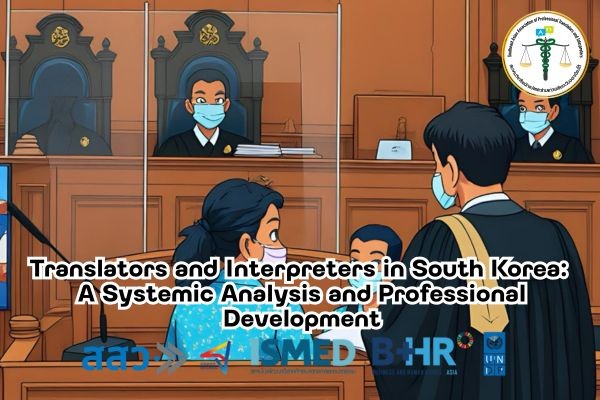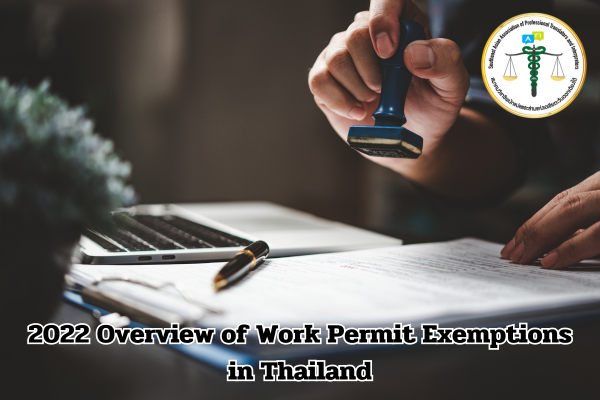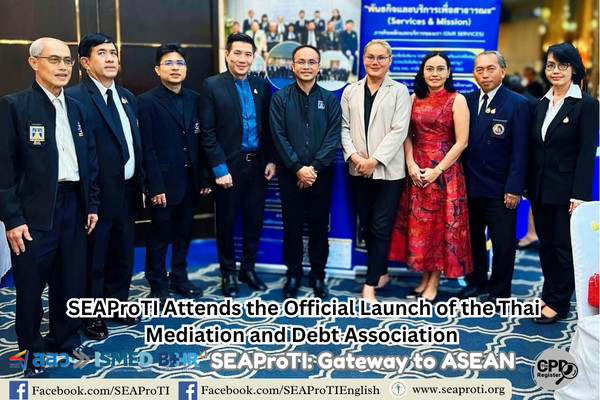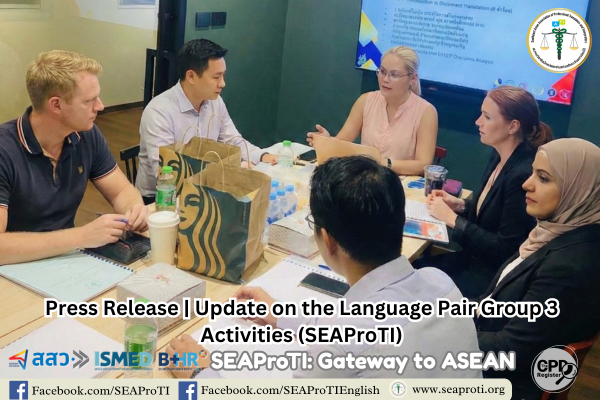Translators and Interpreters in South Korea: A Systemic Analysis and Professional Development
10 June 2025, Bangkok – This article presents an overview of the translation and interpreting system in South Korea by analyzing the structure of services, types of work, relevant professional organizations, as well as trends in service rates and professional standards. Based on a survey of public and private sector sources, South Korea has developed an efficient system for professional translators and interpreters, playing a significant role both nationally and internationally, particularly in the contexts of business negotiations, international conferences, and judicial proceedings.
Keywords: translator, interpreter, South Korea, profession, professional organization, translation, interpreting
1. The Role of Translators and Interpreters in the Globalized Era
In an era of globalization, where cross-linguistic communication is central to international cooperation, the roles of translators and interpreters have become key mechanisms for promoting intercultural understanding. South Korea, with its prominent role in the East Asian economy, has systematically developed its translation and interpreting industry with support from government agencies, professional associations, and private companies.
2. Types of Services
Translation and interpreting services in South Korea can be categorized as follows:
- Written Translation: Includes legal, technical, medical, academic, and multimedia documents (Seo & Hwang, 2020).
- Interpreting: Covers simultaneous, consecutive, and liaison interpreting, commonly used in business meetings, medical settings, and courtrooms (Choi, 2017).
- Localization: Focuses on adapting content from websites, apps, and software to local language and cultural contexts (Lee, 2019).
3. Professional Organizations and System Structure
The Korean Association of Translators and Interpreters (KATI) is the main body responsible for accrediting qualifications and upholding ethical standards. Membership is open to individuals who meet defined criteria, emphasizing work experience and output, without requiring specific academic degrees (KATI, n.d.).
In addition, public databases are available, such as the KATI directory and the list of interpreters and translators provided by the U.S. Embassy in Seoul (U.S. Embassy Seoul, 2023), which aim to facilitate access to professionals without endorsing any individual or company.
4. Availability and Qualifications of Professionals
Many professional translators and interpreters in South Korea hold advanced degrees, such as Master’s degrees in translation and interpreting from leading institutions, and have specialization in legal, medical, diplomatic, or technical fields (Jung & Yoon, 2018). Many are multilingual, offering services in Korean, English, Chinese, Japanese, Russian, and French.
Most professionals work as freelancers or through agencies that follow international quality standards, such as ISO 17100 for translation services (SEAtongue, 2024).
5. Hiring Channels and Service Rates
Hiring of translators and interpreters in South Korea typically occurs through the following channels:
- Online Platforms: Such as Upwork and Interpreters.travel, allowing clients to review credentials and portfolios before contracting.
- Professional Translation Agencies: Such as SEAtongue, which offer services in compliance with international standards.
- Professional Associations: KATI directories are used to find certified professionals (KATI, n.d.).
Rates vary widely. For example, simultaneous interpreters in Seoul may charge between €210 and €1,000 per day, depending on expertise and demand. Freelance translators on platforms like Upwork may charge approximately $60 per hour (Interpreters.travel, 2023).
6. Conclusion
South Korea’s translation and interpreting profession is robust and adaptive, capable of meeting domestic and global communication needs. The country’s well-organized professional infrastructure, combined with technological development and standardization, ensures that translation and interpreting services remain of high quality and internationally competitive.
References
- Choi, S. (2017). The Role of Interpreters in Korean Courtrooms: Legal and Ethical Perspectives. Korean Journal of Translation Studies, 15(2), 55–72.
- Interpreters.travel. (2023). Interpreter services in South Korea. Retrieved from https://www.interpreters.travel/
- Jung, Y., & Yoon, H. (2018). Professional Identity and Training of Korean Conference Interpreters. Asia Pacific Translation and Intercultural Studies, 5(1), 43–60.
- KATI. (n.d.). Korean Association of Translators and Interpreters – About Us. Retrieved from https://kati.or.kr
- Lee, J. (2019). Localization Industry Trends in Korea: A Strategic Overview. Journal of Language and Business, 11(1), 78–93.
- SEAtongue. (2024). Certified Translation Services. Retrieved from https://www.seatongue.com/
- Seo, J., & Hwang, M. (2020). Translation Practices in Korean Technical and Medical Fields. Journal of Translation and Terminology, 7(1), 23–38.
- U.S. Embassy Seoul. (2023). List of Translators and Interpreters in Korea. Retrieved from https://kr.usembassy.gov/
SEAProTI’s certified translators, translation certification providers, and certified interpreters:
The Southeast Asian Association of Professional Translators and Interpreters (SEAProTI) has officially announced the criteria and qualifications for individuals to register as “Certified Translators,” “Translation Certification Providers,” and “Certified Interpreters” under the association’s regulations. These guidelines are detailed in Sections 9 and 10 of the Royal Thai Government Gazette, issued by the Secretariat of the Cabinet under the Office of the Prime Minister of the Kingdom of Thailand, dated July 25, 2024, Volume 141, Part 66 Ng, Page 100.
To read the full publication, visit the Royal Thai Government Gazette
นักแปลและล่ามในประเทศเกาหลีใต้: บทวิเคราะห์เชิงระบบและการพัฒนาวิชาชีพ
10 มิถุนายน 2568, กรุงเทพมหานคร – บทความนี้นำเสนอภาพรวมของระบบนักแปลและล่ามในประเทศเกาหลีใต้ โดยวิเคราะห์โครงสร้างบริการ ประเภทของงาน องค์กรวิชาชีพที่เกี่ยวข้อง และแนวโน้มในด้านอัตราค่าจ้างและมาตรฐานวิชาชีพ จากการสำรวจแหล่งข้อมูลภาครัฐและภาคเอกชน พบว่าเกาหลีใต้มีโครงสร้างการพัฒนาวิชาชีพนักแปลและล่ามที่มีประสิทธิภาพ และมีบทบาทสำคัญทั้งในระดับประเทศและนานาชาติ โดยเฉพาะในบริบทของการเจรจาทางธุรกิจ การประชุมระหว่างประเทศ และกระบวนการยุติธรรม
คำสำคัญ: นักแปล, ล่าม, เกาหลีใต้, วิชาชีพ, องค์กรวิชาชีพ, การแปล, การล่าม
1. บทบาทของนักแปลและล่ามในยุคโลกาภิวัตน์
ในยุคโลกาภิวัตน์ที่การสื่อสารข้ามภาษาเป็นหัวใจสำคัญของความร่วมมือระหว่างประเทศ อาชีพนักแปลและล่ามจึงกลายเป็นกลไกสำคัญในการส่งเสริมความเข้าใจระหว่างวัฒนธรรม ประเทศเกาหลีใต้ซึ่งมีบทบาทโดดเด่นในเศรษฐกิจเอเชียตะวันออก มีการพัฒนาอุตสาหกรรมแปลและล่ามอย่างเป็นระบบ ด้วยการสนับสนุนจากทั้งภาครัฐ สมาคมวิชาชีพ และบริษัทเอกชน
2. ประเภทของบริการ
บริการแปลและล่ามในเกาหลีใต้สามารถจำแนกได้ดังนี้:
- การแปลเอกสาร (Written Translation): ครอบคลุมเอกสารทางกฎหมาย เทคนิค การแพทย์ วิชาการ และมัลติมีเดีย (Seo & Hwang, 2020)
- การล่าม (Interpreting): มีทั้งล่ามพร้อม (simultaneous), ล่ามตาม (consecutive), ล่ามประสานงาน (liaison) ใช้ในที่ประชุมทางธุรกิจ การแพทย์ และศาล (Choi, 2017)
- โลคัลไลเซชัน (Localization): มุ่งเน้นการปรับเนื้อหาเว็บ แอปพลิเคชัน และซอฟต์แวร์ให้เหมาะกับบริบทภาษาและวัฒนธรรมท้องถิ่น (Lee, 2019)
3. องค์กรวิชาชีพและโครงสร้างระบบ
สมาคมนักแปลและล่ามแห่งเกาหลี (KATI) ถือเป็นองค์กรหลักที่ทำหน้าที่รับรองคุณวุฒิและดูแลจริยธรรมวิชาชีพ โดยเปิดรับสมาชิกที่ผ่านเกณฑ์มาตรฐานซึ่งครอบคลุมทั้งประสบการณ์และผลงานการแปล แม้ไม่มีการกำหนดวุฒิการศึกษาอย่างเข้มงวด (KATI, n.d.)
นอกจากนี้ ยังมีฐานข้อมูลสาธารณะ เช่น ไดเรกทอรี KATI และรายชื่อผู้ให้บริการที่จัดทำโดยสถานทูตสหรัฐอเมริกาในกรุงโซล (U.S. Embassy Seoul, 2023) ซึ่งมีเป้าหมายเพื่ออำนวยความสะดวกในการค้นหาผู้เชี่ยวชาญโดยไม่รับรองคุณภาพเป็นทางการ
4. ความพร้อมของผู้ประกอบวิชาชีพ
นักแปลและล่ามในเกาหลีใต้จำนวนมากมีวุฒิการศึกษาระดับสูง เช่น ปริญญาโททางการแปลและล่ามจากมหาวิทยาลัยชั้นนำ และมีความเชี่ยวชาญเฉพาะด้าน เช่น กฎหมาย การแพทย์ การทูต และเทคโนโลยี (Jung & Yoon, 2018) หลายรายมีความสามารถในหลายภาษา ได้แก่ เกาหลี อังกฤษ จีน ญี่ปุ่น รัสเซีย และฝรั่งเศส
รูปแบบการทำงานส่วนใหญ่อยู่ในลักษณะฟรีแลนซ์ หรือผ่านบริษัทเอเจนซี่ที่มีมาตรฐานสากล เช่น ISO 17100 ซึ่งกำหนดข้อกำหนดด้านคุณภาพในงานแปล (SEAtongue, 2024)
5. ช่องทางการจัดจ้างและอัตราค่าบริการ
การจ้างนักแปลหรือล่ามในเกาหลีใต้มักทำผ่านช่องทางดังนี้:
- แพลตฟอร์มออนไลน์: เช่น Upwork และ Interpreters.travel ซึ่งให้ผู้ว่าจ้างตรวจสอบประวัติและผลงานก่อนการตัดสินใจ
- บริษัทแปลมืออาชีพ: เช่น SEAtongue ให้บริการตามมาตรฐานสากล
- สมาคมวิชาชีพ: ไดเรกทอรีของ KATI ใช้ค้นหาผู้ให้บริการที่ผ่านการรับรองคุณภาพ (KATI, n.d.)
อัตราค่าบริการมีความหลากหลาย โดยค่าล่ามพร้อมในกรุงโซลอาจอยู่ที่ประมาณ €210–€1,000 ต่อวัน ขึ้นอยู่กับความเชี่ยวชาญและความต้องการเฉพาะด้าน ขณะที่นักแปลฟรีแลนซ์อาจคิดค่าบริการที่ $60 ต่อชั่วโมง (Interpreters.travel, 2023)
6. บทสรุป
ระบบนักแปลและล่ามของประเทศเกาหลีใต้มีความเข้มแข็งและยืดหยุ่น พร้อมรองรับความต้องการทั้งในระดับประเทศและสากล โครงสร้างวิชาชีพที่สนับสนุนโดยสมาคมที่มีมาตรฐานร่วมกับการพัฒนาเชิงเทคโนโลยี ทำให้เกาหลีใต้สามารถรักษาคุณภาพของบริการแปลและล่ามให้อยู่ในระดับแนวหน้า
บรรณานุกรม
- Choi, S. (2017). The Role of Interpreters in Korean Courtrooms: Legal and Ethical Perspectives. Korean Journal of Translation Studies, 15(2), 55–72.
- Interpreters.travel. (2023). Interpreter services in South Korea. Retrieved from https://www.interpreters.travel/
- Jung, Y., & Yoon, H. (2018). Professional Identity and Training of Korean Conference Interpreters. Asia Pacific Translation and Intercultural Studies, 5(1), 43–60.
- KATI. (n.d.). Korean Association of Translators and Interpreters – About Us. Retrieved from https://kati.or.kr
- Lee, J. (2019). Localization Industry Trends in Korea: A Strategic Overview. Journal of Language and Business, 11(1), 78–93.
- SEAtongue. (2024). Certified Translation Services. Retrieved from https://www.seatongue.com/
- Seo, J., & Hwang, M. (2020). Translation Practices in Korean Technical and Medical Fields. Journal of Translation and Terminology, 7(1), 23–38.
- U.S. Embassy Seoul. (2023). List of Translators and Interpreters in Korea. Retrieved from https://kr.usembassy.gov/
เกี่ยวกับนักแปลรับรอง ผู้รับรองการแปล และล่ามรับรองของสมาคมวิชาชีพนักแปลและล่ามแห่งเอเชียตะวันออกเฉียงใต้
สมาคมวิชาชีพนักแปลและล่ามแห่งเอเชียตะวันออกเฉียงใต้ (SEAProTI) ได้ประกาศหลักเกณฑ์และคุณสมบัติผู้ที่ขึ้นทะเบียนเป็น “นักแปลรับรอง (Certified Translators) และผู้รับรองการแปล (Translation Certification Providers) และล่ามรับรอง (Certified Interpreters)” ของสมาคม หมวดที่ 9 และหมวดที่ 10 ในราชกิจจานุเบกษา ของสำนักเลขาธิการคณะรัฐมนตรี ในสำนักนายกรัฐมนตรี แห่งราชอาณาจักรไทย ลงวันที่ 25 ก.ค. 2567 เล่มที่ 141 ตอนที่ 66 ง หน้า 100 อ่านฉบับเต็มได้ที่: นักแปลรับรอง ผู้รับรองการแปล และล่ามรับรอง

























